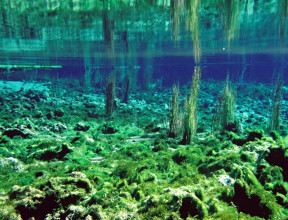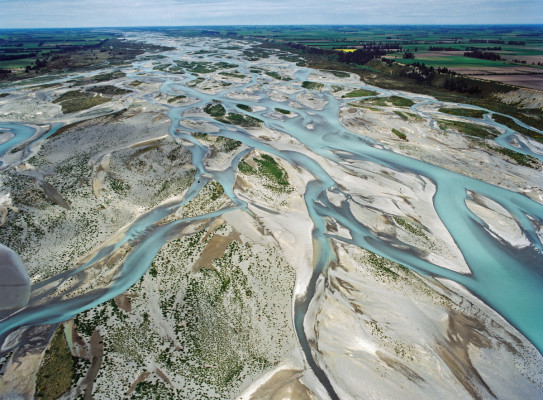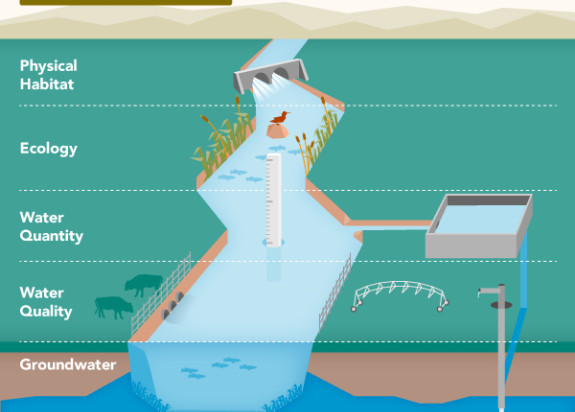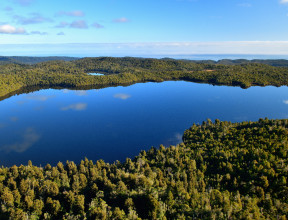
Freshwater

Our freshwater resources are increasingly under pressure from land use, a growing population and climate change.
Climate change means regional councils, iwi and coastal and marine industries will need to manage changing coastal sedimentation, coastal erosion, rising groundwater and salinity in coastal aquifers. Changes in rainfall will affect groundwater recharge, with potential impact across the system.

New Zealanders rely on high-quality freshwater stored in underground aquifers. 40% of our potable water is sourced from groundwater, and we don’t yet understand the impacts of changing land use and changing climate on those groundwater reservoirs and systems.
Protecting our lakes is also critical. We’re exploring their current biodiversity and water quality as well as how and why they’ve changed over the past 1,000 years.
Te Whakaheke o Te Wai – Pc8gPco6fWA transcript
The name of this research program is Te Whakaheke o Te Wai or loosely translated the meandering waters, and that is a reflection of our groundwater systems and also our focus that we're working in Hawke's Bay on, on the Hirotanga catchment, and the nature of the water and how it flows through our lands.
The aim of the project is to better understand groundwater flow, the pathways of groundwater flow and the origins of groundwater beneath the surface with the idea that if we can understand it better we can manage it better.
The project is a sort of sum of three parts isotope science mataranga knowledge and modelling and I lead the modelling stream. And what we're doing is to build a framework that allows models to be built very very quickly as soon as there's a concern and you tailor the model to answer the question or the concern that it's meant to be addressing, and they'll answer the question a lot more accurately.
So my role in this project is to ensure that mataranga maori or maori knowledge is incorporated into this project.
It's important that we increasingly and incorporate indigenous knowledge with western science when we're trying to and better understand things particularly in this case around the water and how we can better look after this resource that we have.
For Hawke's Bay and one outcome from this project is that we are definitely going to be able to manage our water resources much more effectively, but as a nation I think having these tools that can be applied nationally will help address the some of the big problems we have with water resource management that are fairly consistent across the country.
Over many years I have been developing techniques to read the isotopic signature of groundwater which can tell us about what where the water is being recharged so the recharge source, but also how long it has been underground which then will give us a better understanding of how to manage groundwater resources.
Apart from just the tools that this project's going to provide, I think it's one of the best things about it is working with a really really super talented bunch of people at GNS science, and getting into some novel research and practical science that is pushing the limits of what's being done before so in that respect it's really quite exciting.
Te Whakaheke o Te Wai
The Te Whakaheke o Te Wai (TWOTW) research programme aims to better support water management based on the understanding of flow sources, pathways and lags.
Key questions driving our research
- How will changing climate and land use affect our groundwater systems and impact freshwater security?
- What is the natural state we are trying to manage to? We must decide whether we are trying to restore our climate and environment to pre-industrial levels, to pre-settlement levels or if we are only trying to mitigate the worst impacts. If we chose mitigation, then we must identify and understand how a mitigation approach will impact our way of life.
